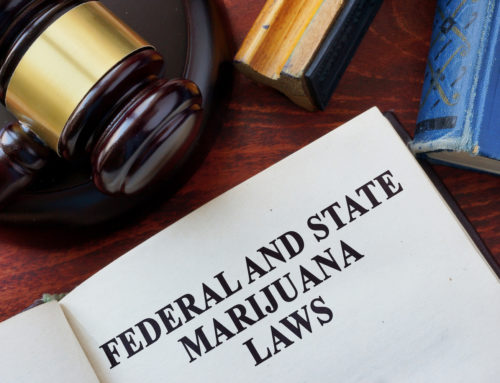 CA criminal law on remaining silent after being detained or arrested for a crime stems from the U.S. Constitution as interpreted by state and federal courts over many years. In my almost 20 years of practicing law, when I speak to a prospective client about a criminal arrest, they almost invariably tell me that they believe that they have a good to defense to the criminal charges whether the charges be DUI, assault with a deadly weapon or even murder because they were not given their Miranda rights. Unfortunately, throughout California and even the United States, law enforcement officers violate the Fifth Amendment Miranda warnings requirement all the time but usually it does not allow for dismissal of a case. If an officer fails to read your Miranda rights at the time of a custodial interrogation and you give an incriminating statement, your attorney may make a motion to suppress that statement where it cannot be used in the prosecution’s case in chief. However, if the prosecution has enough evidence to prove their case against a defendant without the use of the incriminating statement, then the suppression of the statement under Miranda will often times be irrelevant. Moreover, if a Defendant decides to take the stand and testify, the Prosecution may be able to impeach that Defendant with a statement suppressed under Miranda further diluting the invocation of the right to remain silent under the Fifth Amendment.
CA criminal law on remaining silent after being detained or arrested for a crime stems from the U.S. Constitution as interpreted by state and federal courts over many years. In my almost 20 years of practicing law, when I speak to a prospective client about a criminal arrest, they almost invariably tell me that they believe that they have a good to defense to the criminal charges whether the charges be DUI, assault with a deadly weapon or even murder because they were not given their Miranda rights. Unfortunately, throughout California and even the United States, law enforcement officers violate the Fifth Amendment Miranda warnings requirement all the time but usually it does not allow for dismissal of a case. If an officer fails to read your Miranda rights at the time of a custodial interrogation and you give an incriminating statement, your attorney may make a motion to suppress that statement where it cannot be used in the prosecution’s case in chief. However, if the prosecution has enough evidence to prove their case against a defendant without the use of the incriminating statement, then the suppression of the statement under Miranda will often times be irrelevant. Moreover, if a Defendant decides to take the stand and testify, the Prosecution may be able to impeach that Defendant with a statement suppressed under Miranda further diluting the invocation of the right to remain silent under the Fifth Amendment.Effect of Salinas v. Texas on the Right to Remain Silent
In the recent United States Supreme Court decision of Salinas v. Texas, the Court found that “before
[an arrestee/defendant can] rely on the privilege against self-incrimination, he is required to invoke it.” This means that if you don’t say anything in response to being given your Miranda rights, anything you say or don’t say can be used as evidence against you. As such, it is always advisable, absent advise from a competent criminal defense attorney, to verbally exercise your right to remain silent. However, Salinas appears only to apply to “non-custodial” interrogations meaning that silence in response to a Miranda warning while in custody is still sufficient to invoke the Fifth Amendment protection against self-incrimination.
Two exceptions to the ruling in Salinas still exist: (1) a defendant at trial does not have to take the stand and verbally assert his or her rights to remain silent under the Fifth Amendment as such requirement would violate a Defendant’s right to a fair trial; and (2) if a person is being unlawfully interrogated to the point where he or she is facing “inherently compelling” pressure from law enforcement such as verbal threats and actual physical violence, any statement derived from such interrogation would be inadmissible if you failed to verbally invoke your right to remain silent.
Although the United States Supreme Court seems to have taken the punch out of Miranda through the years, the Fifth Amendment is still viable and you should immediately consult with an experienced California criminal defense attorney when arrested to determine what constitutional rights have been violated.
Requirements in California to Invoke Miranda Right to Remain Silent
Many people who are arrested after being questioned by the police on the street, believe that their statement should be inadmissible because they were not given their Miranda warnings. Law enforcement is required to read a person his or her Miranda warnings if that person is subject to a “custodial interrogation” by the police. The issue of whether someone is in custody for purposes of Miranda has been litigated in the Supreme Court for years.
In the case of Howes v. Fields, the United States Supreme Court held that a two-part test should be used to determine if a person is subject to a custodial interrogation for purposes of Miranda. The first part of the test if for a court to determine: whether a reasonable person would not feel free to leave and end the questioning by the police looking at all the facts and circumstances surrounding the police questioning. The second prong of the test is to determine whether the environment surrounding the questioning presents the same inherently coercive questioning as a jail house questioning like the one that occurred in the actual Miranda case.
The issues surrounding custodial interrogation can be complicated and a person who is arrested or charged with a crime should immediately contact a competent criminal defense attorney who has had experience litigation motions to suppress statement under Miranda.
CA Law on the Right to Remain Silent After a Traffic Stop
California criminal law on remaining silent is based upon the U.S. Constitution. Many persons arrested as a result of traffic stop for such crimes as driving under the influence, possession of drugs or possession of a concealed weapon including a gun often believe that they should be given their Miranda warnings while in their vehicle or just outside their vehicle in the course of a traffic stop. However, the United States Supreme Court in the case of Maryland v. Shatzer has found that a traffic stop is “temporary and relatively nonthreatening” and unlike a jailhouse interrogation. As such, persons should be cautious when answering questions during a traffic stop if they believe their answers will be suppressed pursuant to Miranda.
In terms of invoking your Fifth Amendment right by silence during a traffic stop, one could argue that silence after being read such rights is enough to invoke the privileges under Miranda while under a temporary detention as a result of a traffic stop. A Terry stop or temporary detention by the police involves enough compulsion by law enforcement that after being read Miranda rights, silence may be deemed an invocation of Miranda. This issue is complicated and should be discussed with a criminal defense lawyer when defending yourself against criminal charges.
What we can learn from Salinas is to always verbally invoke your right to remain silent during and arrest, detention or other “custodial” interrogation if you don’t want the police to use any statement you make against you. If you are silent after being given the Miranda warnings and are not found to be under custodial interrogation, Salinas allows the prosecution to use your statement so be careful what you say and don’t say!
Importance of Obtaining Legal Advice from A Knowledgeable California Criminal Lawyer if You Feel Your Right to Remain Silent Was Violated
The Fifth Amendment to the U.S. Constitution provides fundamental legal rights but, as discussed above, whether this right has been violated depends upon a lot of facts. A quality California criminal defense attorney can advise any person of whether their rights were violated and can move to suppress any statements made that would result in a criminal conviction. Whether you are in Los Angeles or anywhere in Southern California, retaining a criminal lawyer to advise and defend on these issues can mean the difference between freedom and jail! Free consultations for any Los Angeles criminal charge: 310-623-3771





